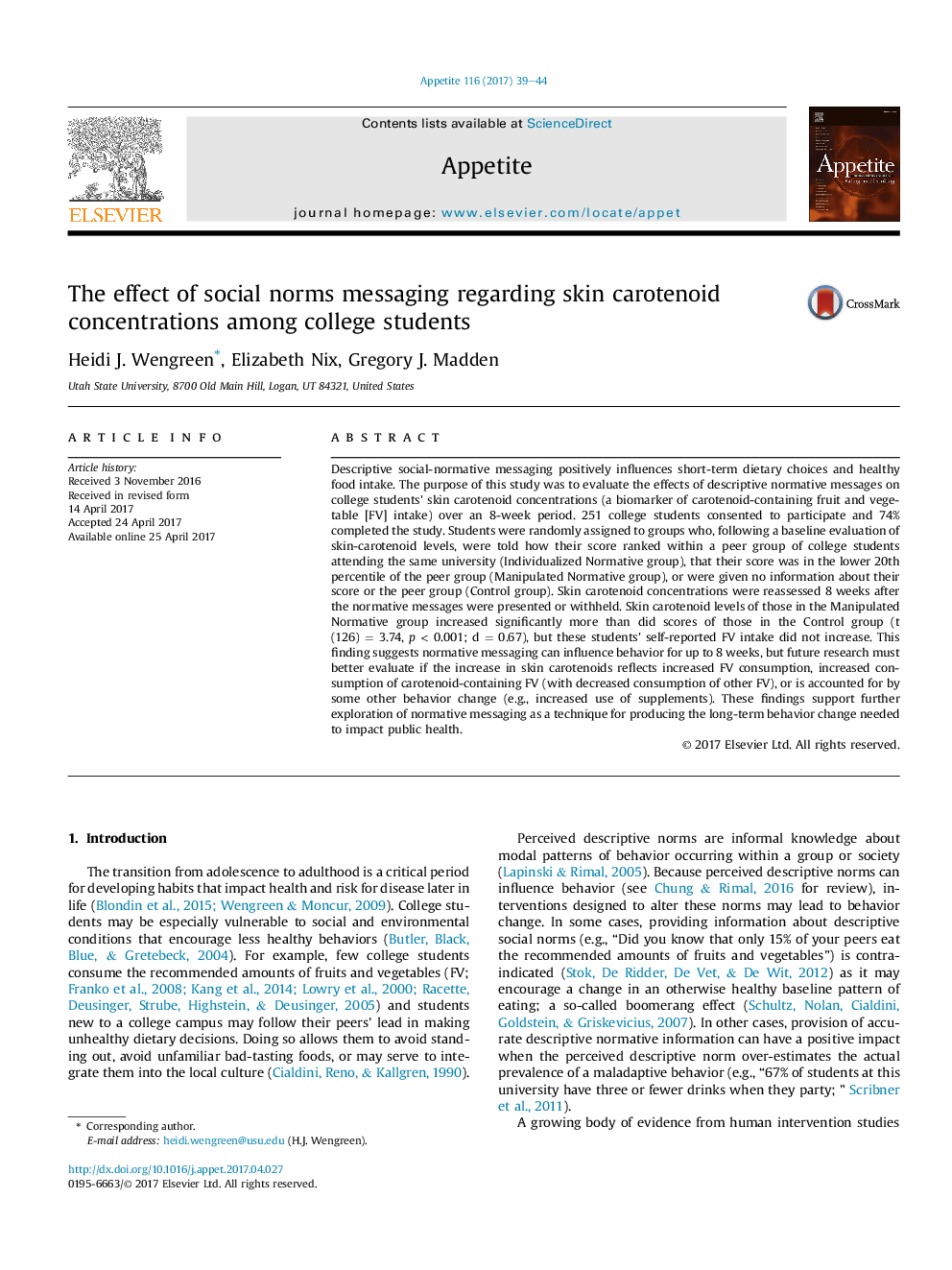ترجمه فارسی عنوان مقاله
تأثیر پیام هنجارهای اجتماعی در مورد غلظت کاروتنوئید پوست در دانشجویان
عنوان انگلیسی
The effect of social norms messaging regarding skin carotenoid concentrations among college students
| کد مقاله | سال انتشار | تعداد صفحات مقاله انگلیسی |
|---|---|---|
| 161133 | 2017 | 6 صفحه PDF |
منبع

Publisher : Elsevier - Science Direct (الزویر - ساینس دایرکت)
Journal : Appetite, Volume 116, 1 September 2017, Pages 39-44

